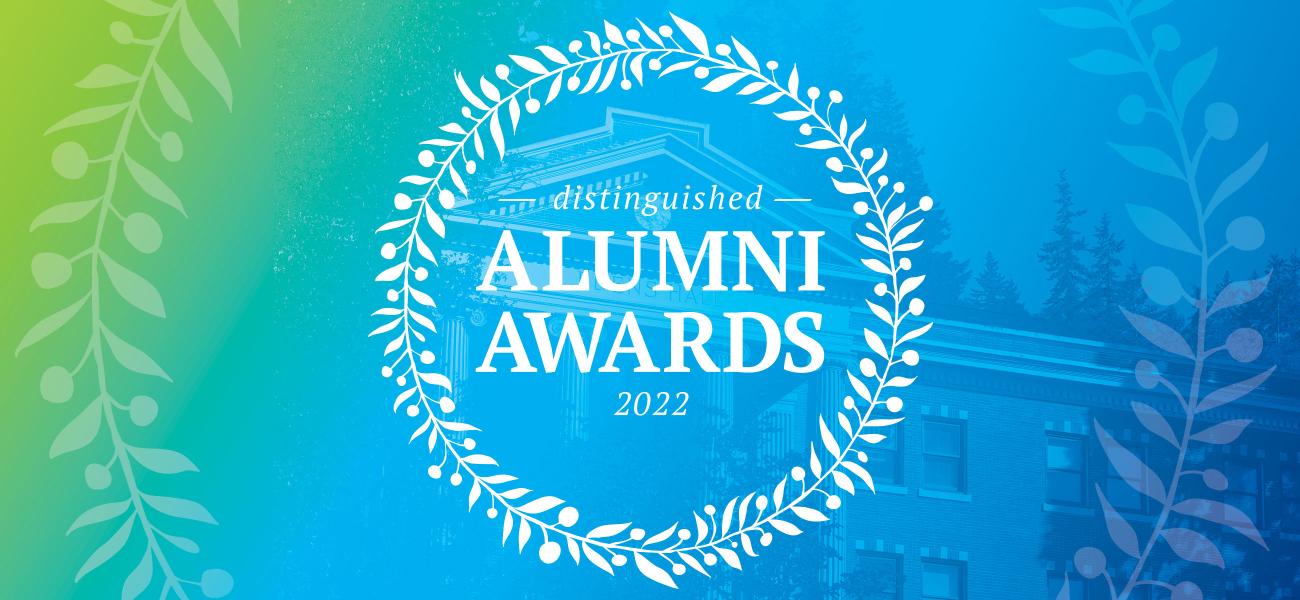
Distinguished Alumni Awards 2022
May 13 | 6-7 pm
Western Washington University has a long tradition of honoring distinguished and dedicated alumni who have shaped the world, strengthened our community, and supported student success.
These annual awards were first presented in 1980, and are the highest honors bestowed by Western's Alumni Association. Selected through a rigorous process, each recipient has made a lasting impact through outstanding professional, philanthropic, or volunteer accomplishments.
Each May, honorees gather in Bellingham for a special awards day, hosted by President Randhawa, that features unique opportunities to interact with current students and culminates in a presentation ceremony followed by a festive and elegant dinner.
2022 Distinguished Alumni Awards Honorees
Western Washington University is pleased to recognize these 13 alumni for their distinction as both members of the Western community and leaders in their respective fields.
Dr. Steven Garfinkle
Campus Volunteer Recognition Award
Justin Michael Iwasaki, MD, MPH (’04)
Community Volunteer Award
Kate Eleanor Gould (’07)
Young Alumna Award
Zachary Pullin (’08)
Young Alumnus Award
Jonathan Min-Wook Main (’94)
Distinguished Alumnus
College of Business and Economics
Albert “Bill” Way (’79)
Distinguished Alumnus
College of the Environment
Gabrielle Kazuko Nomura Gainor (’10)
Distinguished Alumna
College of Fine and Performing Arts
Ijeoma Oluo (’07)
Distinguished Alumna
College of Humanities and Social Sciences
Dr. Llewellyn Rhys Lawson (’01)
Distinguished Alumnus
College of Science and Engineering
Angelique Davis (’95)
Distinguished Alumna
Fairhaven College of Interdisciplinary Studies
Dr. Kristi Dominguez (’94)
Distinguished Alumna
Woodring College of Education
Paul Rady (’80)
Lifetime Achievement Award
David Woodruff & Family
Legacy Family Award
Rashawn Nadine Scott
Distinguished Alumna 2020
College of Fine and Performing Arts
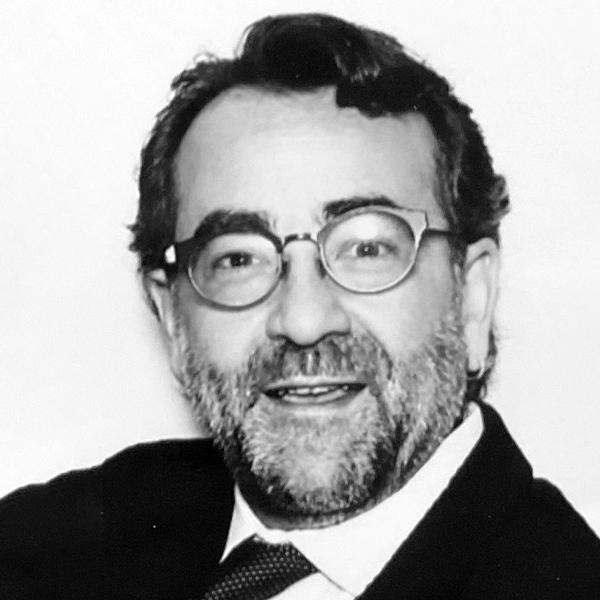
Campus Volunteer Recognition Award
Dr. Steven Garfinkle
In his 20 years of teaching at Western, Steven Garfinkle has distinguished himself as a professor, scholar, and an advocate for the Department of History as well as departments and programs across the Western campus, working closely with Advancement staff to secure funding to support inclusion and ensure student success. He is eager to see students gain access to programs and experiences normally out of reach without donor support, and he works hard to see that access granted.
“A very healthy aspect of the academy is that professors are teaching, engaging in scholarship, and acting in service to the university. As you become more senior in your career, you take on more service and that makes us better teachers and scholars, it nourishes our ability to be effective in the classroom and as researchers in our fields.”
By service, Steven means the countless hours and meetings he has in addition to his teaching and publishing responsibilities in order to secure funding for his department and its programs. As an example, students often travel to conferences to present research they’ve conducted. Steven raises money for the students’ travel stipends and expenses, expanding the accessibility of travel and creating a more inclusive experience for the students. Donors then get to see immediate impact of their philanthropy through the research the students present.
Recently, Steven worked with several campus stakeholders and donors to endow a professorship in Jewish History at Western.
“The state has created K-12 social studies programs that include the Holocaust. And not to reduce Jewish history to just the Holocaust, but it’s an important part of public education today. By continuing that study in college, we are addressing the state’s needs in educating more students in this particular part of history.”
In 2016, the need for broader and deeper education about the Holocaust came home to Western when seven Jewish studies books in Wilson Library were vandalized with swastikas and other antisemitic messages. The community came together to replace the collection, and donors gave more than 250 books to the library in an act of healing and remembrance.
“I worked closely with the Ray Wolpow Institute for Holocaust Studies and donors to invest in Jewish history studies. This is how we prevent future acts of antisemitism—through education.”
Steven has founded the Journal of Ancient Near Eastern History, served as president of the faculty union, acting chair of the history department, among many other roles on campus.
“In my 20 years at Western, I have loved every part of it. I love the opportunity to give back in a variety of ways as I become more involved. As president of the faculty union, I got to see campus more broadly and I understand the important work other professors do outside my field.”
His proudest moment was getting the Jewish History professorship endowed. “Sarah Zarrow has been incredible in that position. She just received tenure, and now we have something we didn’t have before.”
But Steven doesn’t stop there. During the pandemic, he also helped find funding for the Black Student Coalition Coordinator position in Multicultural Student Services.
“This position was seen as mostly a counseling role for BIPOC students, but we’re examining where the mission is right now and finding ways for this position to help student success, meeting students where they are and where their needs are.”
It isn’t typical for professors to include fundraising in their work, though it happens more frequently as legislative support can be uncertain.
“There is a growing practical realization that although the legislature is aiding higher education well, it’ll never be back to the fully funded levels we had many years ago. With national disinvestment of higher education, more faculty are stepping up to coordinate with donors and Advancement to raise funds, endow professorships, and support students. Students today need us to do our best.”
And where did Steven get this drive to help underrepresented, historically resilient, and underprivileged students succeed? His mother.
“My mother spent her adult life raising money for organizations. I grew up familiar with the work and language of fundraising.”
Steven lives with his family in Bellingham.
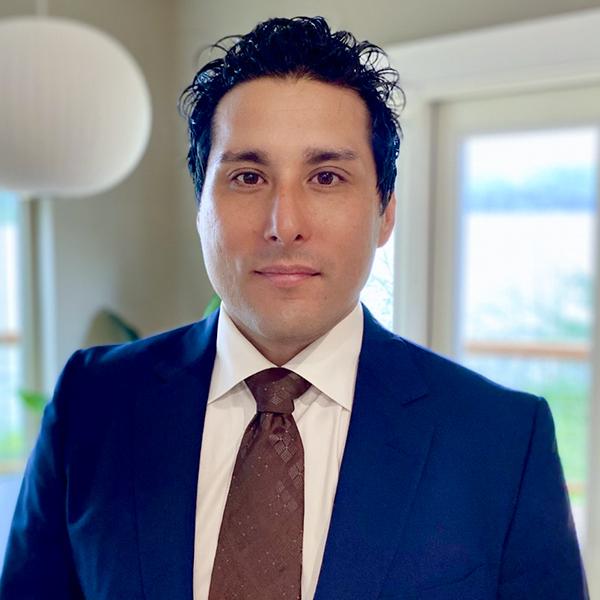
Community Volunteer Recognition Award
Justin Michael Iwasaki, MD, MPH (’04)
In early 2021, people across the nation lined up at pharmacies and crashed phone lines to get the first round of COVID-19 vaccine appointments. Immunocompromised, elderly, and tribal populations were at the top of the list for doses, and Lummi Nation received one of the first batches in Whatcom County. Justin Iwasaki got to work. As the Director of Health System Design and Special Projects, and a healthcare provider for the Lummi Nation, he and his team were ready.
“Because the Lummi community is so connected, we managed to get a large proportion of the community vaccinated pretty quickly. And, because of the allocation methods established by the federal government, Lummi had access to additional vaccine doses that could be redistributed to the broader community.”
After a few months of vaccination efforts, everyone who wanted a vaccine in the Lummi Nation had one. The Lummi leadership then decided to protect the greater community by vaccinating teachers, first at the Lummi Nation School, and then staff in the Ferndale schools.
“We have a lot of Lummi kids in the Ferndale schools, so vaccinating staff was another round of protection for those kids. Also, doing everything we could to help make teachers and staff feel safe and return to the classroom where they were needed most, was really important.”
And it was personal as well—Justin graduated from Ferndale High School and many of the teachers who received vaccines had also been his teachers.
“Our team’s flexibility and ability to vaccinate large populations gave us the opportunity to expand our reach to many different organizations including Base Camp in Bellingham, Lydia Place, Whatcom Transit Authority, Whatcom County Jail and many others. It was an incredible community building experience during such a complex and stressful time.”
Facebook posts, tweets, and Nextdoor posts were full of gratitude from people around the county who received those critical early vaccines. Teachers, staff, Ferndale families who worked with high-risk groups, all of them had essential protection. The act of giving those doses to the greater county likely saved lives and absolutely provided necessary protection.
“Boundary Bay Brewing and Mount Baker Ski Area reached out to us to have vaccinations available there for service workers. We actually provided shots in the lodge at Mt Baker which I don’t think anyone on the team will forget. We were able to expand to all restaurant and service workers. Anywhere there was a need, we would bring vaccines. There was a great community response.”
Justin attended Western with a double-major in biochemistry and philosophy. A medical provider with a global perspective, the double major served him well.
“My double major was a balance that suited me.”
While at Western, Justin was encouraged to study abroad by his philosophy professor Frances Howard-Snyder. He attended the University of Cape Town for a semester studying philosophy, a year that shaped his global perspective.
“Studying abroad really put my professional career on a global health trajectory.”
After Western, Justin worked for the Program for Appropriate Technology in Health (PATH) an international global health organization that brings innovations and systems (like vaccines, drugs, and health technology) that improves the lives of those living in developing countries.
“I worked at PATH as a field consultant in Tanzania in the clean water sector doing household level research on affordable water purification systems.”
PATH is the largest grantee for the Bill and Melinda Gates Foundation.
He attended the University of Utah for medical school and received his MD and an MPH. His residency in family medicine was at the University of Washington.
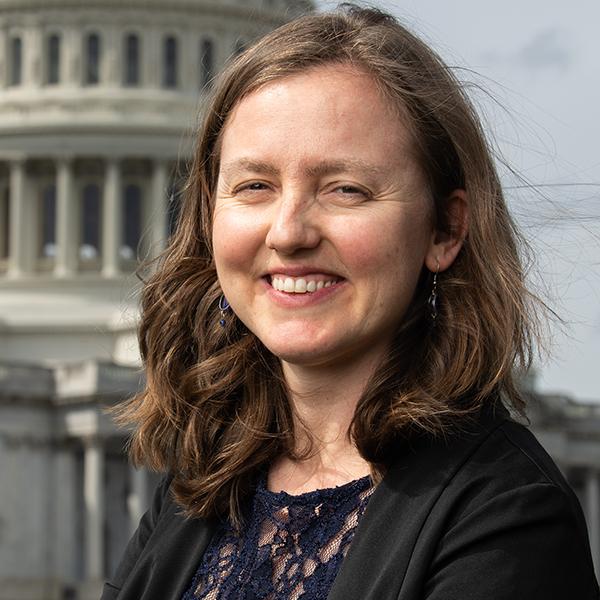
Young Alumna of the Year Award
Kate Eleanor Gould (’07)
Kate Gould began her road to politics as a College of the Environment student in marine science and had planned to become a marine biologist. She had been politically active at a young age, but became disillusioned about politics until something big happened in the world that changed her course forever—the U.S. invasion of Iraq in 2003.
In 2003, Kate was angered by the immorality of the invasion and continuing occupation of Iraq and was moved to act. She learned as much as she could about the Middle East. She took courses at Fairhaven with Shirley Osterhaus, attending every lecture about the Middle East offered through the Fairhaven World Issues Forum. Her best friend at Western, Michaela Williams (’08), encouraged her to get involved in the Democratic presidential primary campaign that was starting to heat up. Something started to spark.
“I loved environmental science, but I felt pulled by political activism and ended up taking more and more political science classes. I learned from Professor Debra Salazar that political science was a study of political movements, and tools people have used throughout human history to change the world.”
She became involved in student groups, namely Western Against War. She helped organize an Iraq war protest on campus with a die-in with students wearing red bio-hazard bags and wrote earnest letters to Senators Patty Murray and Maria Cantwell and Representative Rick Larsen—people she sees on Capitol Hill today.
“I realized this was the work I wanted to do.”
She felt drawn to global politics and studied abroad in Bolivia. She made a mini-documentary about the human rights impacts of the War on Drugs in Bolivia, and traveled solo from the mountains of La Paz to the jungles of the Chapare to interview Bolivian officials, activists, and human rights organizations. Fascinated by the depth and breadth of conversations she had about politics, she saw how politics functions on a global scale.
“It seemed like every day there was a new protest in Bolivia—some against the government, some in support—all with a ‘protest energy’ I had never seen before. I remember my host mother, whose brother was “disappeared” under the previous dictatorship, told me she would never take for granted the relief she felt in being able to criticize the government without the fear of being tortured or killed.”
She returned to Bellingham full of energy and hopeful about the future, joined WWU Students for Renewable Energy and worked to transition Western away from fossil fuels, and other environmental action.
After graduation, Kate moved to Washington, D.C. to work on anti-war policy with the Friends Committee on National Legislation and eventually led their Middle East advocacy program. It was there she met Ro Khanna, Representative for California District 17.
“I worked closely with his office on working to end the U.S. support for the war in Yemen. I still remember how nervous I was when I walked him up to our lectern for his keynote speech at FCNL’s annual advocacy conference. I was captivated when he spoke about how he found political inspiration from his grandfather, who was jailed with Gandhi during the Indian independence movement. A few months after he gave that speech I applied to work in his office as a Congressional Progressive Caucus Center Foreign Policy Fellow, and later that year he hired me for a permanent position on his team.”
In just three years with the Congressman, she has been promoted from serving as his Senior Policy Advisor to his Legislative Director, to her current role as Rep. Khanna’s Deputy Chief of Staff and Human Rights and National Security Advisor. While overseeing his entire legislative team and policy agenda, she has helped advance his efforts to bolster U.S. humanitarian response to India’s COVID crisis, free political prisoners in Egypt, reduce civilians killed and injured by U.S. airstrikes, and end U.S. military support for the Saudi-led war in Yemen.
“When I came to D.C., I was warned ‘don’t meet your heroes, and definitely don’t work for them, or you will be disappointed.’ One of the best decisions I ever made was rejecting that advice to work for my boss and my hero, Ro Khanna. The longer I work for him, the more in awe I am of the depth of his conviction for justice and the more I witness his relentless commitment to help people who have been left behind in our district, our country, and our world.”
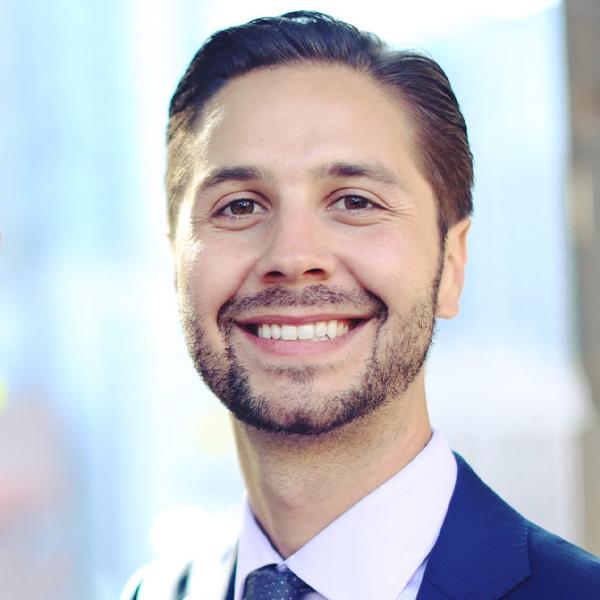
Young Alumnus of the Year
Zachary Pullin (’08)
Zachary Pullin was drawn Western’s small class sizes and beautiful campus when he decided to attend in 2004. But possibly the biggest draw for the young queer Native American was the progressive spirit of Western and Bellingham.
“I was born and lived on a reservation in Montana and then moved to Spokane, which was conservative in all aspects. Although I wasn’t out yet, I knew I wanted a progressive community.”
During his first quarter at WWU, a friend of his was a resident assistant and suggested he apply to be one, even as a first-year student. She said it would be a good way to build name recognition for a later quarter when he would be considered. But something strange happened—he was hired to be an RA as a freshman.
“Beginning freshman year as an RA definitely taught me a lot. I realized Western had a lot of faith in me, and I felt this alignment between who I am and who I think I am. I was a leader to help nurture community, and it was so accepting. It’s built into Western’s DNA to be inclusive, accepting, safe.”
It also felt like the kind of place he would find his footing as a progressive leader. Feeling safe became increasingly important to Zachary in his process of coming out.
“I fell hard for a guy, and I had the sense that I could address some internal stuff and make mistakes, and that I’d be okay. I felt courageous enough to come out.”
He also found community with NASU (Native American Student Union), which he appreciated. Zachary is a citizen of the Chippewa Cree Nation of Rocky Boy, Montana.
“I loved connecting with other Native American students from all over. It was great to have all these people from different tribes and still see so much commonality.”
After graduation, Zachary went into the Peace Corps and served in Belize. After he returned, he found a sense of community in Capitol Hill in Seattle. He was the first queer Native president of Capitol Hill Community Council. There, he created the country’s first Renters Commission for the City of Seattle. He created and passed a law to require that landlords provide voter registration to new tenants and led volunteer nights at local organizations.
He made a good friend along the way, Debora Juarez (2017 Distinguished Alumna for Fairhaven College and 1983 graduate of WWU). Seattle’s first Native American city councilperson, she was a good mentor to Zachary, especially on city matters.
Zachary pulled together a coalition of renters and landlords, students and older people and brought real and lasting change to Seattle. They worked on diversion programs to keep law enforcement from relying on jail as the only resource for drug addiction and low-level crimes; they brought Chinatown and the International District along with Capitol Hill in getting better, more community-minded policing for their respective areas, and then in 2017 Zachary ran for the District 5 position on the Seattle school board and won.
“It was an evolution of my leadership—it was the next best step.”
Zachary was the first out-queer Native President of the Seattle School Board. He advocated for LGBTQ+ students, for gender-neutral bathrooms, and for LGBTQ+ history to be threaded into the curriculum. He worked to change the name of an elementary school to James Baldwin Elementary. He helped create black studies courses and banned police presence from schools, created the policy to allow student board members, ended the segregated gifted program, moved meetings out into the community, expanded Native education, created a policy that allows students two civic engagement absences per year, and he helped end isolation and restraint. His proudest achievements are creating and passing the state’s first public school project labor agreement, called the Student and Community Workforce Agreement, and passing a transformative 100% clean energy and environmental resolution that commits the district to 100% clean by 2040, including electric busses. The district is already investing in this resolution with $18 million in the February 2022 levy. He also created and then worked with Councilmember Sawant on a law that bans evictions of students, student families, and SPS staff during the school year. His legacy in the Seattle schools will be felt for generations.
Today, Zachary works at Washington Environmental Council/Washington Conservation Voters as communications director. He has published widely in The Advocate, Oxford University Press, Native Peoples Magazine, Seattle Times, and many other places. He lives in Seattle with his dog Maya.
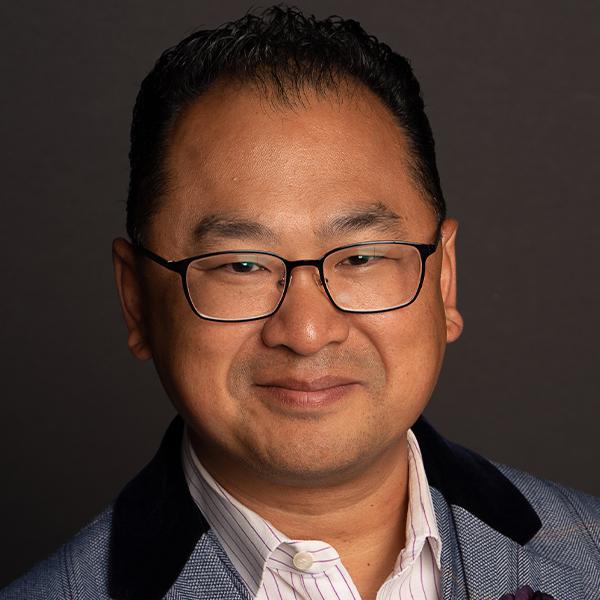
Distinguished Alumnus - College of Business and Economics
Jonathan Min-Wook Main (’94)
The world of international business is, on a good day, a whirlwind. And now with pandemic-related delays and shutdowns, it’s a hurricane. At the calm center of that storm, you will find Jonathan Min-Wook Main, founder and managing director of Sarame Corporate Holdings, managing partner of Re-Echo Holdings, and CEO of Lensbaby, and CEO of Fundy Software. In 2009, Jonathan was selected as the WWU Young Alumnus of the Year, and he hasn’t slowed down since.
Jonathan’s experience at Western set him up for success. His father Carl L. Main is a 1968 master’s alumnus who taught mathematics for 50 years. He taught at Shoreline Community College, in Seattle, Kensington University in London, and Florida College in Tampa. Jonathan’s daughter Rachael DaHee Main also attended Western, and became the third generation graduate in 2021 with a degree in primary education. Jonathan returns to campus as often as possible and remains connected to professor of supply chain management Peter Haug and professor of international business Tom Roehl.
“My father’s favorite professor kept an eye on me when I came to WWU, and while my daughter was at Western, my professor from 1990, Peter Haug, kept an eye out for her.”
It was at Western that Jonathan found a discipline that aligned with his high energy, strategic thought process and interest in all things international. He has spent his career connecting pieces of the supply chain all over the world to manufacture and market products, businesses, services, even sports teams, from premium camera lenses to the Chicago Bulls. He moves easily in multiple worlds and coaches business owners to do the same.
“International business requires a strong background in economics, finance, supply chain management and problem solving. You don’t have to be a specialist in any one field, but you do need to have a successful business model and have thick skin so you can maneuver anywhere in the world.”
He thrives on the business challenges that make up a “normal day at the office.” That office could be Wi-Fi hardwired at 30,000 feet or sitting on a hay bale speaking with farmers.
Jonathan doesn’t just share his gifts with clients and associates—he often returns to campus to teach students international business and simulate what real life in the sector is really like. He remembers his own time at Western, and pays forward the life lessons given when he was a student, trying to prepare for his own career.
“In the international projects class, I’ve opened up my various companies to give students opportunities to present to my leadership teams. My executives, in turn, critiqued them with real-world, front-line information.”
Jonathan has also taken Western students to entrepreneurial case competitions, angel investment meetings, professional networking events and set up business exercise collaborations with visiting foreign university students.
“I make the Western kids find a way to get their own business cards, throw them into high pressure situations and force them to mingle. We have rules. The students have to collect as many business cards as possible, tell us one thing about each person they collected a card from, no two students may speak to the same person at the same time, and whoever ends the day with the most business cards wins!
Jonathan, at his core is a business builder. He loves meeting the people behind the scenes who drive the brands. With Lensbaby, an international camera lens company, he gets to work with some of the biggest photo and video brands in the world. At Fundy Software, he collaborates with the world’s most talented photographers. With the Chicago Bulls and Oklahoma Thunder, he worked with NBA executives. With Disney, he gained insight into the mechanics and logistics at the parks in Orlando and Anaheim. With Lululemon and Arteryx, he built supply lines into the United States that serve as infrastructure the companies stand on today. Jonathan is passionate about the people he works with and the companies he works for. He defines successful business to be a “true alignment of interests between parties to obtain a common goal.”
Jonathan maintains his ties with Western by serving on the International Business “Kitchen Cabinet” advisory board at the College of Business and Economics and returning to campus to help international business students gain insight into the fast-paced, exciting world they are looking to enter.
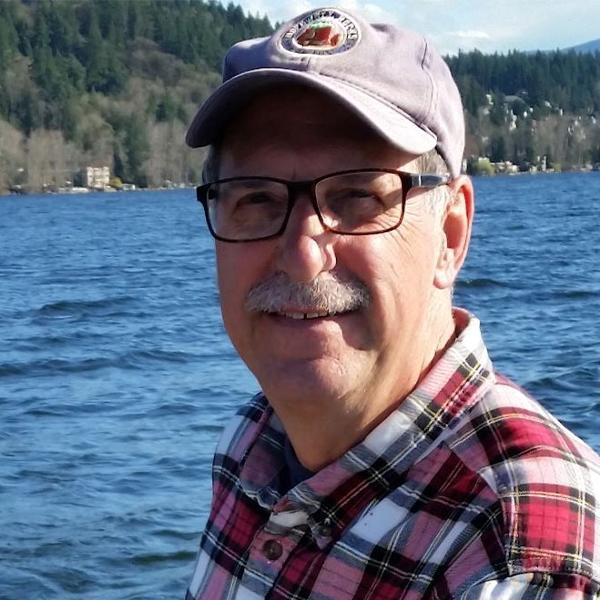
Distinguished Alumnus - College of the Environment
Albert “Bill” Way (’79)
Bill Way enjoyed Western so much, he decided to stay awhile. He took his time graduating, soaking up knowledge in the College of the Environment and learning about watersheds and stream restoration. He didn’t know it yet, but he was building the foundation for a successful business.
“It all started with Lynn Robbins, professor emeritus of the College of the Environment, having faith in me. He let me write my own program in Human Ecology.”
Bill led a stream restoration project as an undergraduate, and became a “crusader in hip waders,” restoring compromised streams and wetlands into productive fish and wildlife habitats. And while he didn’t have a background in business, he started one anyway. He worked throughout Washington with local and State government, Tribes, developers, landowners, and salmon enhancement groups, founding The Watershed Company with his wife Nancy in 1982. Though he retired six years ago, the business continues to flourish with a portfolio that includes miles of completed stream and shoreline restoration and acres of wetland restoration and enhancement.
A stellar project example is at the Snohomish County Airport where the FAA required the runway to be relocated for safety reasons—right into a Class I wetland. When the U.S. Army Corps of Engineers responded with “over our dead bodies,” Boeing’s largest airplane manufacturing facility was put in jeopardy. Bill and The Watershed Company saved the day with the first wetland mitigation bank in the State—the 50-acre Narbeck Wetland Sanctuary.
Bill also hired dozens of Western graduates during his 35 years as Watershed CEO because he knew that they were technically well grounded and committed to improving the environment.
“Western provides its environmental school graduates with the tools to really make a difference as the planet faces tremendous ecological challenges.”
Bill remains busy. He joined the board of Mid-Sound Fisheries Enhancement Group and Friends of Lake Sammamish State Park. He has been working on a comprehensive trail plan for the park which has garnered $ 2 million in support from grants, the State Legislature, corporations, and private individuals.
His expertise in watersheds, regulations, and environmental restoration as well as his ability to “sell” a great environmental project have made him the ideal volunteer to carry out the complicated park plan.
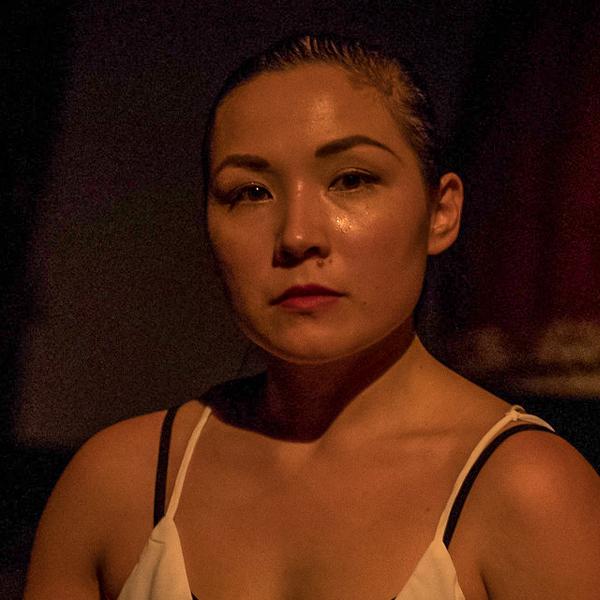
Distinguished Alumna - College of Fine and Performing Arts
Gabrielle Kazuko Nomura Gainor (’10)
In her dancing and choreography, Gabrielle Kazuko Nomura Gainor draws on more than just physical strength and technique from her background in classical ballet. She is inspired by history, Asian cultures, storytelling, and community organizing. She draws on her Japanese-Filipina heritage and Buddhist faith, incorporating Asian-American theater and classical Japanese dance in her pieces. Her deep and wide mixture of influences echoes the multidisciplinary undergraduate experience she had at Western.
“At Western, though I continued to dance, I was a journalism major. I explored storytelling in a collaborative, multidisciplinary way that is present in my work today. My cultural anthropology minor is also at play in my work.”
Though a journalism major seemed like an anomaly in her dance-centric path, she enjoyed exploring the precision of writing and learning how to synthesize what was happening in the world around her.
“To Western’s credit, that broad liberal arts education gave me a place to pursue all of my interests, to customize my own learning, and to envision how I would ultimately contribute as an artist and journalist.”
She had a few professors at Western who helped illuminate her path. Veteran journalist and media scholar Carolyn Nielsen is particularly memorable. “Carolyn Nielsen fearlessly talked about race and reporting in a way that inspired me.”
Another professor also made a big impression on Gabrielle—Seattle native and visiting professor Kraig “Bopi” Patterson of the Mark Morris Dance Group.
“Having a proudly queer, Black teacher and mentor made a powerful impression on me—someone who was not comfortable being herself for many years. Bopi’s encouragement meant a lot.”
After Western, Gabrielle continued to dance professionally, including with Bellingham Repertory Dance. She worked her day job at the Seattle Opera, volunteered with the Japanese American Citizens League, and got involved in racial-justice work and community activism.
After performing with various artists in the Pacific Northwest for a decade, she has now settled with a group of women and femme collaborators she playfully refers to as her “Asian American dance company.” In 2021, she was selected for the 100-hour Heritage Arts Apprenticeship Program, in which she has been studying Kagura, a sacred Japanese dance performed during Shinto ceremonies.
“Asian-American womanhood for me personally is about a connection to family and ancestors. I want my dancers to bring their own cultures and histories to the work as well.”
In her projects, Gabrielle encourages her dancers to know and tell their own stories in performance and in life. She aims to lead choreographic processes for her collaborators that are full of healing, community, and self-discovery. She has worked with dancers of different ages, life stages, and body types from 8 years old to two dancers in their 60s.
“There’s an inherent elitism of ballet and other classical arts that we treasure in the West. Following the racial-justice uprisings, there’s been a larger conversation about the inherent racism in dance. For many of us, the messages were both overt and subtle: if you weren’t white, you were less-than.”
Bringing inclusion into dance is critical to Gabrielle’s work. She feels a deep responsibility, not only to bring stories to light from her community, but to tell Asian stories in solidarity with all communities of color.
“So many of the things that made me want to hide myself as an Asian ballerina now make me want to be seen.”
During the pandemic, as many other dance groups and theaters closed and went on hiatus, Gabrielle and her dancers kept performing at the Seattle Japanese Garden, in a virtual gala for a Japanese American nonprofit—and in Gabrielle’s backyard.
“When your performances are more based around your community rather than fitting in to the dance world—you have so many more opportunities to perform.”
As for the effect of her dance on the audience, Gabrielle likes direct communication, clear expression.
“I want to create change on the stage and in the world—dance and writing are my tools.””
Gabrielle Kazuko Nomura Gainor lives in Seattle.
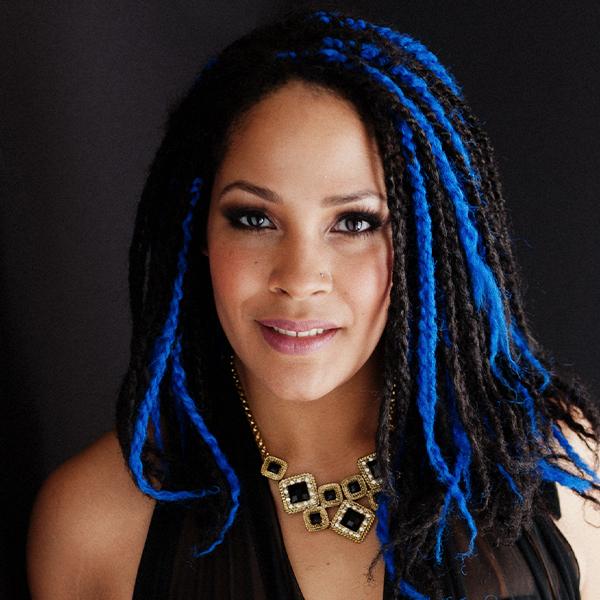
Distinguished Alumna - College of Humanities and Social Sciences
Ijeoma Oluo (’07)
Long before she was a noted author, talk show regular, self-described “internet yeller,” and one of the most influential Black voices in our culture, Ijeoma Oluo,’07, was a pregnant mother and 26-year-old political science undergraduate at Western. She loved the small class sizes, beautiful campus, and the AS Child Development Center, where her older son Malcolm attended.
At 6 feet tall and pregnant, Ijeoma was a presence on campus. “At 26, I filled this weird gap between undergraduates and adult professors. I deeply remember professors and how lovely they were, how excited they were about what work students were doing, and excited to share in that work.”
But it wasn’t at all a simple time. “Although I loved my professors and I love learning, I was always the only Black student in every class I had. Dr. J was the only Black professor I had in my entire four years. I had to bring my race considerations into every class.”
Navigating Western as a lone Black person in her classes wasn’t lonely—she was too busy to be lonely—but it was challenging. “As a student, mom, and Black woman, campus wasn’t built for me.”
Her sister Jaq, who attended Western almost a decade later, had a similar experience. “She went through all four years and got her master’s and did not have a single Black professor the entire time.”
Following graduation, Ijeoma went to work at in the tech sector and in advertising. As she navigated workplaces, she felt pressured to work harder than her white colleagues, to be more polite in all circumstances than they had to be, to code-switch to the point of breaking—and she began to write about it.
She kept a food blog, which evolved into a blog about the Black experience in Seattle. The writing spilled over into Facebook posts, tweets and essays in the Guardian, Esquire, and the Washington Post.
In 2018, She published her first book “So You Want to Talk About Race.” In 2020 after the murder of George Floyd, it reached No. 1 on the New York Times Bestseller list. Accessible and practical, “So You Want to Talk About Race” is both a user’s guide for white people who want to be better coworkers, friends and family members, and a deep, introspective look into the institutions and practices that feed systemic racism.
In her second book “Mediocre: The Dangerous Legacy of White Male America,” Ijeoma delves into the history and legacy of white supremacy. The ultimate message in “Mediocre” is that patriarchy isn’t just bad for the people oppressed by it, it’s also bad for the white men and others who uphold it.
Even with her publishing success, the past few years have been challenging for Ijeoma and her family: Her home was targeted in 2019 by white supremacists for a form of harassment known as “swatting” and she had to move for the safety of her family. In 2020, her new home caught fire and burned to the ground. Ijeoma and her fiancée escaped with only the clothes on their backs, only to learn the next day that Malcolm had COVID. Earlier this year, her mother grew ill and was hospitalized.
But there have been beautiful, bright moments, too. She is engaged to KEXP morning DJ Gabriel Teodros. “Thin Skin,” a film about her brother, jazz musician Ahamefule J. Oluo and co-starring Ijeoma, has received a distribution deal with Mutiny Pictures. The film was directed by Fairhaven College alumnus Charles Mudede, ’96, B.A., who co-wrote it with Ahamefule, and Lindy West.
And Ijeoma has a third book coming out. “Be A Revolution” will be an examination of creating change in systems of racism, and how everyday actions can be influential in challenging oppression. “It’s less about me, and more structured around the work people are doing to make change.”
Throughout her work, Ijeoma critiques policing, barriers in public education, and, yes, Western itself. But as with everything Ijeoma Oluo, the critique is both unvarnished and offered with deep love. She is, above all, someone who seeks to heal the hurt of racism in our world, not just call folks out. Like a good friend, she offers counsel on how we can all do better, to live up to the expectations set for us and be our best selves in the world.
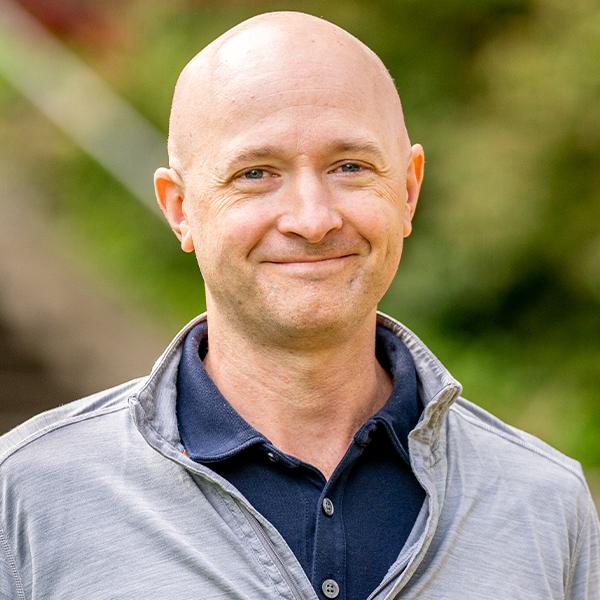
Distinguished Alumnus - College of Science and Engineering
Dr. Llewellyn Rhys Lawson (’01)
Bellingham native Llewellyn Rhys Lawson grew up on Garden Street, three blocks south of Western’s campus. Campus was a playground for him. He spent his time darting among the sculptures, zipping in-and-out of the buildings, grabbing snacks in the Viking Union, and going on elaborate scavenger hunts devised by his father, Robert Lawson, who taught in the Department of Health and Human Services at Woodring.
As he got older, Rhys participated in panels in his dad’s classroom—panels on adolescent behavior in his father’s education classes.
“It was a little uncomfortable, because students would ask us kids about growing up, and some of that stuff wasn’t exactly intended for my dad’s ears. Growing up at Western and being a part of the campus and those classes made me feel as if I were a part of something larger.”
After school, Rhys walked through campus imagining himself as a college student. He saw bands play in the Multipurpose Room. And for graduate school, Rhys made it official; Western was the place for him.
While at Western, Rhys continued his interest in science and also discovered patent law. He worked with David Patrick, professor of chemistry and now vice provost of research and the dean of the Graduate School.
“David Patrick is a great professor, and he was a catalyst who changed my life. He introduced me nanotechnology and patent law. Patent law was the perfect combination of my interests in science and law.”
After graduating from Western with a M.S. in chemistry, Rhys continued his combined interests in science, business, and the law at the University of Washington, where he achieved a Ph.D. in chemistry and nanotechnology, as well as a J.D. He is now a partner at the Seattle intellectual property law firm Christensen O’Connor Johnson Kindness PLLC.
“Now I work with universities and companies to patent their innovations.”
Rhys enjoys the climate of patent law—no sour business partnerships, no contested wills or angry divorces. It’s all collaborative and built on moving innovation forward.
“The great thing about patent law is that I’m a partner in the project and I’m here to help everyone succeed.”
Specifically, Rhys is a translator from innovator to the patent office, ensuring projects meet the requirements.
“I help the scientists and researchers keep the patent within the scope of intellectual property and reasonable discussion.”
One of those projects is the Smart Solar Window project, also a project with David Patrick. This time Rhys was on the legal side of the team, helping to patent the new inventions. The Solar Window project was researched and developed by Western undergraduate and graduate students in collaboration with the University of Washington. Expected to hit the market within the next few years, the solar window collects energy from the sun and converts it into electricity.
“It’s really exciting, it’s the first licensed invention for WWU and when the patents and licensing came through, it was a big moment.”
The solar window project is an example of how Western’s collaborative, interdisciplinary spirit creates innovative projects. A spirit Rhys thoroughly embraces. A science person at heart with a hunger for business and law, he’s a combination of all the best parts of his work.
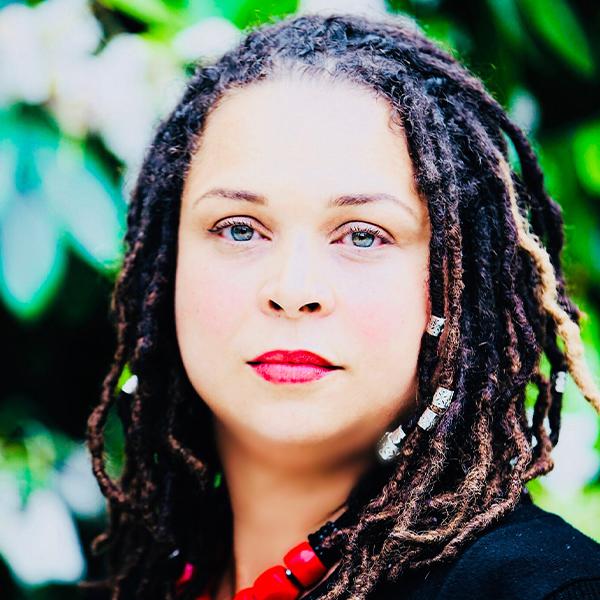
Distinguished Alumna - Fairhaven College of Interdisciplinary Studies
Angelique Davis (’95)
When she came to Western in 1991, Angelique Davis felt very welcomed by the students who opened up their dorm rooms for tours and the faculty who greeted her on campus, but she was one of very few Black students—a lonely situation for a first-year. She soon got involved with the Black Student Union and the Ethnic Student Center (now the Multicultural Student Center).
“I loved Western. I loved the communities of support and the level of student leadership, especially in the BSU. We worked on so many important issues, including establishing affinity housing on campus.”
Angelique also embraced all areas of campus life, seeking guidance from her mentor and dean of students Ted Pratt and her political science professor Vernon “Damani” Johnson.
“Ted Pratt is the reason I came to Western. He did an info session at my high school, and I was relatively skeptical, as I wanted to be thoughtful, and intentional about where I was going to attend college. He would check in, give support, answer questions.”
To this day, Angelique puts prospective students in touch with Ted to get his guidance and encouragement about the Western experience.
Through the Haskell Memorial Scholarship, the Minority Achievement Program Scholarship, the Outstanding Leadership Award, and the U.S. Bank Business Scholarship, she was able to pay for college.
“I was among the first group to receive the Haskell Memorial Scholarship. It made Western possible for me.” The Haskell Memorial Scholarship was established by the late former Trustee, Foundation board president and Bellingham businessman Red Haskell and his wife Betty and is awarded to the most outstanding students from Washington State.
Angelique entered Fairhaven College with an interest in studying law in the Law and Diversity program (now the Law, Diversity and Justice program).
“We were one of the first cohorts to come through the Law and Diversity program, so we were a tight-knit group. It was at Fairhaven I decided I wanted to teach classes similar to the ones I took.”
In true Western fashion, Angelique’s approach was interdisciplinary—she took courses in Black studies, interdisciplinary studies, law studies, political science, and business. She wanted to one day emulate the professors who inspired her, professors like Rand Jack, Lorraine Bannai, and Marianne Rodriguez, who had both classroom experience and real-world exposure.
“I love how much work professors did on my behalf, how much knowledge they poured into me and how much they got out of me.”
She also had a friend in WWU president Karen Morse who retired in 2008. “I was so touched at her personal approach and interest in me. She was genuinely invested in students. She was still president when I started my academic career and she gave me a lot of good advice.”
After Western, Angelique attended the University of Washington School of Law and spent her final year at Howard University School of Law as a visiting student. Fairhaven had given her the education she needed to do well in law school.
“I felt prepared for law school. The Law and Diversity Program really helped in getting underrepresented students into law school. We had exposure to administrative support and there was funding available for LSAT prep courses. I wouldn’t have been able to afford those courses without that funding, and those courses were critical in preparing me for the LSAT.”
Angelique received her Juris Doctor from the University of Washington in 1999. She served as a federal law clerk and subsequently practiced law as a labor and employment attorney until she joined the faculty at Seattle University in 2005.
Angelique is currently a professor of Political Science, African and African American studies, and Women, Gender, and Sexuality Studies, at Seattle University. Her research concentrates on racial gaslighting, apologies and reparations, the socio-legal construction of race, the political representation of nonwhite Americans, and the reinvention of white supremacy in the twenty-first century. Throughout her academic career, she has published numerous articles, book chapters, and a book. Her articles are in many journals, including the Journal of Black Studies, The Black Scholar, Berkeley La Raza Law Journal, and the Annual Review of Law and Social Sciences. She published a book chapter, Political Blackness: A Sociopolitical Construction of Blackness Post-Loving v. Virginia, in “Loving in a ‘Post–Racial’ World: New Legal Approaches to Interracial Marriages and Relationships” (Cambridge University Press, 2012). She published a co-authored article with Rose Ernst titled “Racial Gaslighting,” in Politics, Groups, and Identities that won the 2019 Western Political Science Association’s article of the year award. They coined and developed the concept of racial gaslighting that has received international recognition and mentions in many news outlets including BBC, Forbes, and the Harvard Business Review. She is in the process of writing a book with Rose Ernst on racial gaslighting.
In addition to her academic pursuits, Professor Davis served as a Commissioner on the Seattle Civil Service Commission from 2013 to 2022, owns Exhale Academic Writing Retreats, and is a coach and campus workshop facilitator for the National Center for Faculty Development and Diversity (NCFDD).
Among her accolades, she has won the Outstanding Teaching Award for the College of Arts and Sciences at Seattle University, the Faculty of the Year “Sankofa Award” in the Office of Multicultural Affairs at Seattle University, Advisor of the Year Award for the College of Arts and Sciences at Seattle University, and the “Rising Star” Award from “Washington Law and Politics Magazine in 2006.
In addition to her many accolades, Angelique felt such a personal connection to Western having served as president of the WWU Alumni Association board of directors from 2006 to 2008.
She lives in Seattle with her family.
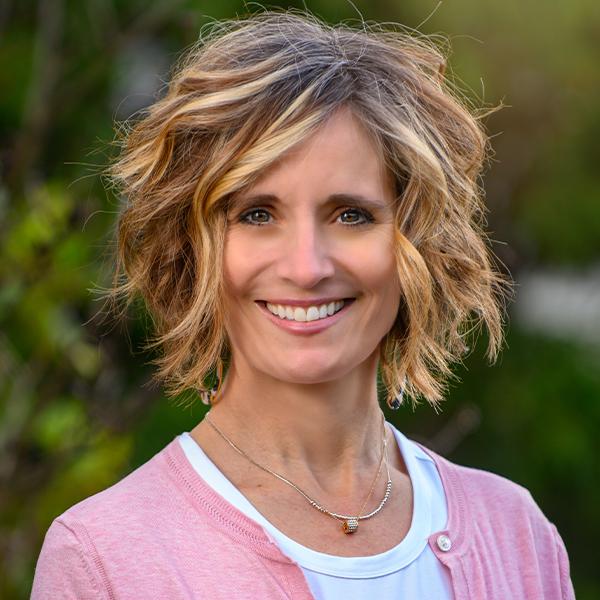
Distinguished Alumna - Woodring College of Education
Dr. Kristi Dominguez (’94)
She may not have written The Bellingham Promise—the guiding strategic and philosophical plan for Bellingham public schools rooted in compassion and inclusion—but Kristi Dominguez certainly embodies it. She began her career as a kindergarten teacher and moved into administration in 1994 as executive director of teaching and learning for the Bellingham schools. She then became the assistant superintendent of teaching and learning for the Bellingham district while completing her doctoral degree through the University of Washington. She was recently hired as superintendent to lead the Ferndale School District. Throughout her career she has championed the overlooked and the underserved.
In 2012, she recognized a significant need in the community for more early childhood education opportunities. She saw a gap between the aid offered to families for preschool and the vast number of working parents and their children who would benefit from an early childhood education experience. She gathered the necessary data and made the case to the superintendent for public instruction in Olympia. And in 2014, Promise Kindergarten (Promise K) was established.
“I had two weeks from getting the “green light” to start the program. I had to hire teachers immediately, so I called Woodring on Friday and told them to have students who were graduating that weekend, send in their resumes at 11:00 AM. I interviewed all by noon, and by Monday, I had four teachers hired.”
Promise K serves students who demonstrate financial, academic, or social-emotional needs who aren’t enrolled in Head Start or another preschool and the program has been a massive success. It allows kids who haven’t had pre-k education the opportunity to gain educational skills their classmates who attended pre-k programs have. Kindergarteners who have been through Promise K will transition to kindergarten with more ease and social skills. The district also partners with the Opportunity Council to find students and families who might qualify for Promise K. The State recognizes the program as ‘transitional kindergarten’ and classrooms are now running all over the State.
For Kristi, that inclusion is an essential piece of education.
“We know that kids who get a solid early education have better outcomes than those who don’t. We know they are more likely to graduate from high school and move into college or careers.”
But her passion doesn’t end there. Kristi is also very involved (and will remain so, even as she moves into her role in Ferndale) with GRADS (Graduation Reality And Dual-Role Skills) a program for teen parents in high school. GRADS provides parenting classes, courses on goal-setting, and on-site infant and toddler care for teen parents.
Kristi’s energy and dedication to marginalized students comes from her own experience growing up. She was raised by her father in the small town of Wapato, in the Yakima Valley. She had undiagnosed dyslexia and struggled with reading. Fortunately, she had a second-grade teacher who really saw the potential Kristi had for learning and kept encouraging her.
“I was good at school. I knew when to be quiet, and how to behave in the classroom, but I couldn’t read until fifth grade. I know from personal experience that children can’t learn when they’re tired, hungry, lonely.”
Years later, after graduation from Western, she was planning her wedding to Tony Dominguez (’94), WWU men’s basketball coach, Kristi invited her second-grade teacher. “She came. It was amazing and it meant so much to me.”
And for many students, Kristi is also that great influence who inspires them.
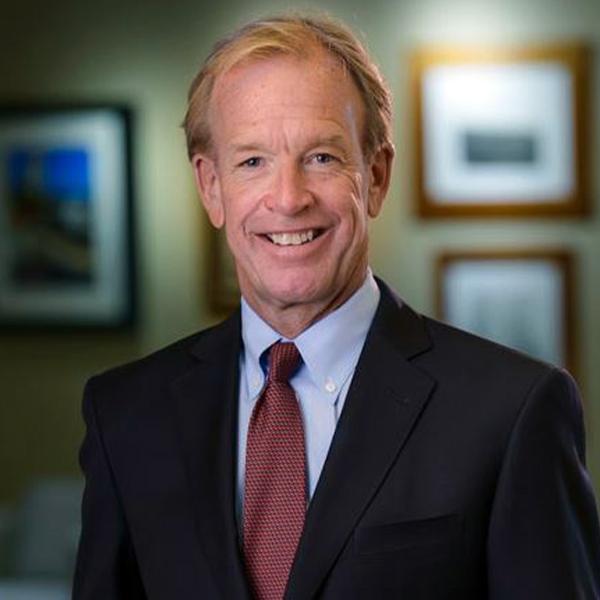
Lifetime Achievement Award
Paul Rady (’80)
Paul Rady, a man of two “Westerns,” attended Western State College of Colorado (another “Western”) where he earned his B.A. in Geology. During his geology studies there, he learned all about Plate Tectonics, Convergent Margins, and Blueschist Facies Metamorphism along the continental margins. This was a hot and emerging field in 1978. Paul was fascinated by it all. He also learned from his own undergraduate professor in Colorado that Dr. E.H. (“Ned”) Brown of WWU was a world expert on the subject and the field.
That’s when Paul decided that he wanted to go to graduate school at Western Washington University and that he wanted to study under Dr. Ned Brown. Paul applied to Western and was accepted into the graduate program, but with no financial aid. Things did not look good.
But then he met Ned, and they clicked, and Ned said they still had one last teaching assistantship to offer. This was a huge break! With a teaching assistantship that paid $800/month, a tuition waiver, and student grants, Paul was able to make ends meet. And for the next two years, Paul taught 100-level and 200-level Introduction to Geology lab courses to undergraduate students.
Paul began his own graduate level studies under Ned’s mentorship during his first semester at Western and they discussed thesis topics. Ned suggested studying the area just west of Mt. Baker between the North Fork and Middle Fork of the Nooksack River, between Mt. Baker and the Twin Sisters. It was steep, rugged, mountainous rain forest with a mixture of many “accreted terrains” of blueschist, greenschist, amphibolite, serpentinite, you name it. It was perfect, just what Paul was looking for and so Paul began his study of the area.
Through the course of the next two years, Paul did lots of mapping, petrology, geochemistry, and even radiometric age dating through the University of British Columbia, and compared and contrasted the different terrains.
Paul particularly honed his skills in Field Geology, spending more than 50 days in the field, and mapped 25 square miles of rugged, steep terrain in deep rain forest with over 100 inches of rain per year.
On one trip to the area with Ned, they climbed Groat Mountain, the tallest mountain in the area, and discovered a previously unrecognized blueschist fault block wedge which turned out to be of Permian age. It was very exciting.
As they descended Groat Mountain, while climbing down a waterfall, Ned twisted and injured his knee. He made it down the mountain, but needed crutches for a while when he got back.
Ned continued to mentor Paul as he pulled together his field study and his lab work, and Ned would give him feedback as he correlated terrains. He was an especially good sounding board for Paul as he wrote his thesis and then defended it.
In May of his final year at WWU, 1980, Paul also experienced one of the biggest geological events in modern history. He was living just off campus on the north side of Sehome Hill when he heard what sounded like a massive sonic boom.
“I had never heard any sonic booms around here, so I ran outside to investigate. When I came back inside and turned on the radio, they announced that Mount St. Helens had just erupted. And I heard it! It was an exciting time for geologists.”
His grad student officemate, Scott, was an amateur pilot who had flown Paul around Mt. Baker and his thesis area, and so Scott flew Mount St. Helens with reporters around the area devastated by the blast, and had lots of photos and stories. The whole world was talking about it.
Paul finished out his graduate career with a 4.0 GPA and looked forward to a career in Geology. Before computer networks and the internet, the only good way to look for jobs was…the Yellow Pages.
“I wanted to find a job, of course, after grad school, so I went to the Bellingham Public Library and looked up companies in Denver, in the Yellow Pages, that might need a geologist. I photocopied many pages and sent my resume and cover letter to about 70 companies, while I wrote my thesis.”
Unfortunately, Paul got all rejection letters, so he went to Denver to knock on doors. The first interview very fortunately landed a job at Amoco, where he stayed 10 years. Ironically, Amoco was one of the 70 companies that rejected him through the mail just months earlier. There’s a lesson there.
The Amoco interview was not what he expected. “I thought the folks would be really “square” there. Crew cuts and pocket protectors. Instead, the engineers and geologists I was introduced to were a cool bunch of surfer dudes.” He relished the office camaraderie and enjoyed the work. Paul honed his gift for not only locating oil and gas reserves by analyzing geological formations, but also being able to predict new sources from the data. A gifted prospect geologist and oil and gas finder, Paul realized this was going to be his calling.
Amoco wanted to promote Paul and send him Houston and then Cairo, Egypt, but he didn’t want to leave the United States. After 10 years at Amoco, Paul was recruited away by Barrett Resources a small company where he became Chief Geologist. This was a big change from the giant company that was Amoco. Being in a small company also allowed for more fluid roles covering more ground.
“Barrett was a small independent company. I had a chance to learn the Wall Street side of the business and ultimately became the CEO of this public NYSE company at a young age.”
“In reconnaissance geology, I’m a detective, piecing together clues, correlations and relationships among surface and subsurface features. In many ways, this is similar to my WWU work, learning to think regionally to creatively piece together the puzzle.
In my first assignment in Utah, I had to learn everything, read the literature, look at how oil and gas fields produce. Through the next decades, I examined the Rocky Mountain, Mid-Continent and Appalachian Overthrusts, the Gulf of Mexico, the Amazon Basin and even Bering Sea offshore, mapping the seismic activities under the Bering Sea.”
In the early 2000s, Paul and his business partner, Glen Warren founded Antero Resources. They built and sold several companies built on shale gas. In 2008 they found a very large discovery in the Marcellus Shale of Appalachian. Antero Resources is now the seventh-biggest natural gas producing business in the country, a success they credit with Paul’s ability to read the geology and see the future. Some say that Paul has the ability to see around corners.
Along with his professional success, Paul is also an avid cyclist who rides the course of the Tour de France annually. He also has some rock-solid values he holds—he supports the Chinese Children Adoption International and he and Katy have adopted four daughters through the program. He and Katy have donated generously to universities and medical programs, and at Western, his support is directed to the Geology Department.
“We’re fortunate to be able to give back. I want to plant a seed that can help develop young people in such a way they will be inspired to also give back at Western. Most importantly, I want to start a self-sustaining research program that recognizes Dr. Ned Brown and all his accomplishments, and establishes lasting research dollars to underpin a continued graduate level research program. This program will focus on the Metamorphic History and Structural Evolution of the North Cascades, as Ned has done it throughout his Western years.
Ned Brown is a great man and mentor to Paul and we honor him as a person who changed Paul’s life for the better.

Legacy Family Award
David Woodruff & Family
The Woodruff family affiliations with Western are broad and deep. Grace Olive Fisher Woodruff worked in the Office of the President at Western in the 1960s. Her son, David Woodruff, attended Western and received his teaching certificate in 1958.
David taught elementary school from 1958 to 1963 in Burlingame, California before moving to Port Angeles. He was a building administrator at Roosevelt Junior High, then, after holding several positions in schools, became superintendent of Cape Flattery school district. Haunted by the racism he witnessed as a child growing up near the Lummi reservation, David established a scholarship at Western for historically resilient students in memory of his mother. He lives with his wife Jeanette in Port Ludlow, Washington.
David’s cousin Sam Sevier (’64) graduated with a B.A. in Electronics, Mathematics and Economics. He received his MBA from the University of Alaska and worked on post-graduate study for computer science and industrial technology at East Texas State University. Sam is the former deputy director of defense technology for the National Security Administration. He worked in the offices of the Department of State and the Department of Treasury and oversaw the Department of Defense coordination of licensing and technology releases. He was also a member of the NATO Industrial Advising Council. He and his wife Ida live in Shelton, WA.
David’s son Martin Woodruff (’84) attended Western, as did Martin’s wife Sheryl Woodruff (‘86), grandson Matthew (’13) and granddaughter Elizabeth (’15). Sam and David’s cousin Marilyn Louise Mastor (’79) also attended Western, as did her son Eric (’87) and her aunt Susan Fey Sandell (’79) and uncle Deane Floyd Sandell (’72). Susan’s grandchild, Anna Velocity Sandell, is a current student at Western. Others in the Woodruff family include David S. Woodruff, Amy Woodruff, David P. Woodruff, Scott Woodruff, Michelle Plants, Maurice, Mara and Luca Cartner and Gabriel Meyer and Sam Sevier’s brother James.
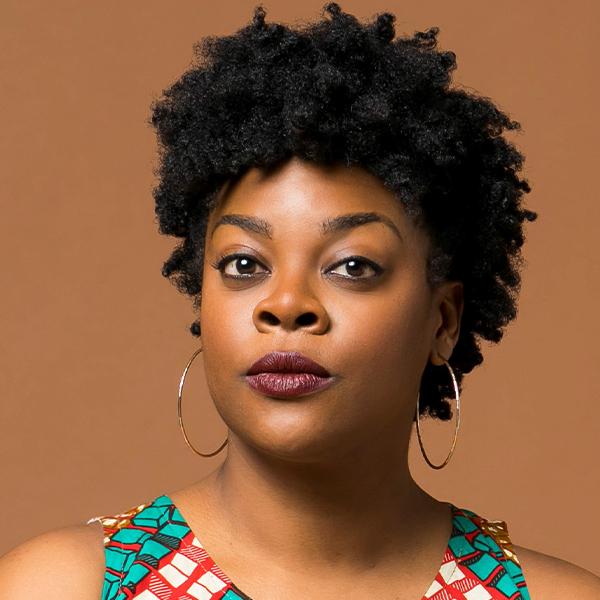
Distinguished Alumna 2020 - College of Fine and Performing Arts
Rashawn Nadine Scott
Rashawn Nadine Scott is an actor, singer and comedian from Tacoma, WA. She studied theatre arts at Western Washington University. After Western, Rashawn moved to Chicago. She produced comedy shows, studied improv comedy at iO and appeared in NPR’s Wait Wait Don’t Tell Me. She co-hosted Windy City Live and, in 2014, she was a recipient of the inaugural Bob Curry Fellowship, an 8-week masterclass offered by the legendary Second City. Following the program, Rashawn was tapped to understudy Second City’s Mainstage and national touring company. Rashawn was then fast tracked through both the e.t.c. and Mainstage at Second City in Chicago. She was also a featured player in the critically acclaimed collaboration between Second City + Hubbard Street Dance Company, The Art of Falling. She performed in several revues, e.t.c’s 39th revue Soul Brother, Where Art Thou?, 104th revue Fool Me Twice, Deja Vu, and the 105th revue The Winner of Our Discontent.
In the summer of 2018, Rashawn moved to Los Angeles for the CBS Diversity Showcase. Her credits include Kitty Goodnight on Comedy Central’s South Side, Nurse Karen on CBS’s Carol’s Second Act, ABC’s Abbott Elementary, FOX’s Empire, Shrink, and voice talent as Agency Employee #9 in the feature film Spies In Disguise.
Our Past Honorees
About Our Awards and Nomination Process
Each year, the deans from each of Western’s seven colleges nominate a graduate of distinction to receive this special honor.
Campus School Recognition Award
Nominees shall have attended the Campus School at Western Washington University and achieved personal and professional recognition and/or made civic contributions in their community. This award is open to WWU alumni and non-alumni.
Community Volunteer Recognition Award
Recognizes an individual in the greater community whose efforts have raised the visibility of Western and strengthened the WWU community through outstanding support and service. This award is open to WWU alumni and non-alumni.
Entrepreneur of the Year Award
Recognizes an individual whose efforts have exemplified an entrepreneurial spirit in their professional endeavors and also encouraged Western students to pursue an entrepreneurial career path. This award is open to WWU alumni and non-alumni.
Larry “Go Vikings!” Taylor Alumni Service Award
Recognizes an alumna/us for their continuous and passionate service to Western Washington University.
Legacy Family of the Year Award
This award celebrates and recognizes a family legacy of Western attendees—those who attended in the past and those who may be currently enrolled. Great-grandparents, grandparents, aunts, uncles, cousins, brothers and sisters, moms and dads and current students are all eligible if they attended, graduated or are attending Western.
Lifetime Achievement Award
Recognizes an alumna/us whose knowledge, experience and insights have led to success in personal, professional or community service endeavors.
Young Alumna/us of the Year Award
Recognizes high-achieving young alumni (age 39 or younger) who have distinguished themselves in an exceptional way.
Young Philanthropist(s) of the Year Award
Recognizes benevolent young alumni (age 39 or younger) who have distinguished themselves through their generous financial support of Western Washington University and modeled for others the critical impact of philanthropy.
In 2018 we launched a new tradition of honoring our Western Washington University Athletics Hall of Fame inductees during the Alumni Awards event, the day prior to their official induction ceremony. The Department of Athletics manages their own nomination/selection process. More information about the Hall of Fame can be found here.